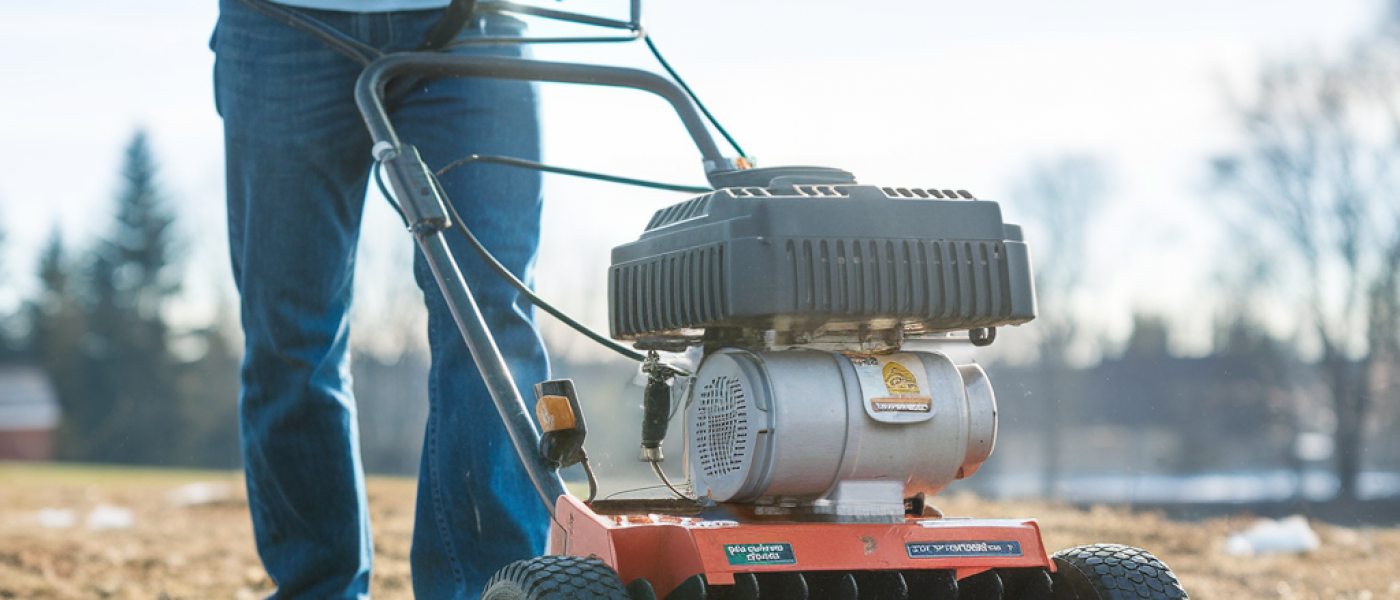
How to Prepare Your Lawn for Winter in Lubbock
Winter in Lubbock can bring unpredictable conditions that leave lawns vulnerable. As temperatures drop, taking the right steps to prepare your lawn can make all the difference for a healthy, green start in the spring. At Mission Service Companies, we’ve put together these expert tips on winterizing your lawn. These steps are easy to follow and will protect your lawn and garden from the winter chill.
Assess Your Lawn’s Condition Before Winter
Before diving into winter preparation, take time to assess the current health of your lawn. Knowing its condition helps identify any problems that need attention, which is key to effective winterization.
Why Assessment is Important: Assessing the lawn helps detect issues like compacted soil, fungal growth, or areas where grass might be thinning. By addressing these concerns early, you can prevent them from worsening during winter dormancy. For example, fungal growth left untreated could lead to dead patches in spring, requiring more intensive repair.
Key Actions:
– Look for signs of disease or pest activity: Brown or yellow patches, moldy areas, or signs of burrowing are indicators of underlying issues.
– Identify compacted areas: Areas that feel hard underfoot may need aeration to allow for proper root breathing and growth.
– Note thinning or bare spots: These areas may need extra care, such as overseeding, before winter to protect the soil and stimulate growth come spring.
Pro Tip: Not sure how to assess the health of your lawn or identify problem areas? The team at Mission Service Companies is here to help! Our expert assessment services identify any pre-winter problems and provide customized solutions. Contact us for a professional lawn check-up.
Essential Lawn Maintenance Steps Before the First Frost
Proper maintenance before winter is the foundation of a strong, green lawn when the season warms up again. Here’s what we recommend to ensure your lawn is ready for the cold:
Mowing Tips for Late Fall:
– Mow at gradually lower heights as winter approaches, but don’t scalp the lawn. A good rule is to keep grass around 2 to 2.5 inches for the final mow. This height is ideal for protecting the roots without exposing the soil to harsh temperatures.
– Common Question: How short should I cut my grass before winter?
– Aim for the grass to be slightly shorter than usual to reduce fungal risk, but not so short that it stresses the roots. Short grass can also help avoid matting under snow or frost.
Fall Aeration:
– Aerating your lawn before winter loosens compacted soil, allowing roots to access oxygen and nutrients even while dormant. In Lubbock’s compact, often dry soil, this is especially important.
FAQ: Is aeration really necessary for winter preparation?
– Yes! Aeration creates small holes that improve airflow, nutrient absorption, and water retention, strengthening the roots over the winter. A well-aerated lawn is far better equipped to withstand Lubbock’s temperature swings and be lush in the spring.
Dethatching:
– Thatch is the layer of dead grass and roots that builds up on top of the soil, which can trap moisture and promote disease. A light dethatching removes this layer, ensuring your lawn isn’t vulnerable to mold and mildew.
– How to Know if Your Lawn Needs Dethatching: If you notice a spongy feel when you walk on the lawn, it may indicate a thick thatch layer. A thatched lawn often dries out more slowly, encouraging fungal growth in winter’s cooler, damp conditions.
Our Fall Lawn Package includes professional aeration, dethatching, and more to ensure your lawn is perfectly primed for winter. Contact Mission Service Companies for details on our seasonal packages that save you time and effort while protecting your lawn all season.*
Fertilize for Winter Strength
A common misconception is that lawns don’t need fertilizing before winter, but this step is essential for a strong, resilient lawn. The right fertilizer promotes root health, which enables your lawn to withstand winter conditions and grow back stronger in spring.
Fertilizer Selection:
– Use a winter-specific fertilizer, which is typically higher in potassium, to encourage root strength without excessive leaf growth. Potassium helps the grass retain nutrients, resist disease, and survive cold spells.
FAQ: Can I use the same fertilizer I used in spring and summer?
– No, we recommend a winterizer fertilizer, which is designed to prepare grass for dormancy rather than stimulate new growth. Nitrogen-heavy fertilizers, typically used in spring, are not suitable for winter.
Timing the Fertilizer Application:
– The best time to apply winter fertilizer is in mid-to-late fall, ideally before the ground freezes. This timing allows nutrients to seep into the soil and reach the roots, but not stimulate new growth that could be damaged by frost.
FAQ: How late is too late to fertilize my lawn in Lubbock?
– You’ll want to apply the fertilizer a few weeks before the first expected frost to ensure it’s absorbed fully. If it’s too close to freezing temperatures, the soil won’t absorb it effectively.
Pro Tip: If you’re unsure about which fertilizer blend is best for your lawn, Mission Service Companies can provide a customized winterization fertilizing service. We use high-quality, seasonal fertilizers that give your lawn the nutrients it needs to withstand winter.
Properly Watering Your Lawn Before Winter Dormancy
Even though lawns don’t need as much water in winter, proper hydration is still crucial before they go dormant. Preparing your lawn with a thoughtful watering schedule can ensure its roots retain the moisture they need without risking mold or root rot.
Adjusting Watering Schedule:
– Gradually reduce your watering frequency in late fall as temperatures drop, but don’t stop completely. This gradual reduction mirrors natural rainfall patterns, helping the lawn adjust without stressing it.
Common Question: Should I water my lawn even if we get rain in fall?
– Yes, but adjust for local rainfall levels. Lubbock’s climate can be unpredictable, and rain doesn’t always reach roots deeply enough to sustain grass through winter.
Deep Watering Before the Freeze:
– One final deep watering session before the first frost gives the soil a good moisture base to retain throughout winter. Deep watering (about one inch) helps the roots absorb enough moisture without becoming waterlogged.
FAQ: How do I know when to stop watering?
– A good rule of thumb is to stop consistent watering once the temperatures consistently dip below 50°F. This is generally when grass begins to enter dormancy, and any water retained at the roots will be used sparingly throughout winter.
Mission Service Companies can take the guesswork out of fall and winter watering by helping you set up a customized schedule that keeps your lawn hydrated and healthy. Reach out today for a consultation on seasonal watering and lawn care.
Clean-Up Tips to Prevent Disease and Improve Spring Growth
A clean lawn going into winter is one of the best ways to ensure a fresh, disease-free start in spring. Debris like leaves, dead grass, and branches can trap moisture, which invites mold, fungi, and even pests to overwinter in your lawn.
Remove Leaves and Debris:
– Rake or blow away fallen leaves and debris to prevent them from covering the lawn. When left on the grass, leaves create a warm, damp environment that can lead to fungal growth or snow mold, both of which can harm the lawn’s health and appearance.
FAQ: Why can’t I leave leaves on the lawn over winter?
– Leaving leaves on your lawn over winter can suffocate the grass and create dead patches, which you’ll need to reseed in spring. Also, certain pests and diseases thrive under leaf cover, impacting the lawn’s recovery and growth.
Winter Weed Control:
– Using a pre-emergent herbicide in fall can prevent winter weeds like chickweed and clover from taking root and spreading. This is especially effective if your lawn typically struggles with weeds in the early spring.
Pro Tip: For lawns prone to weeds, clearing debris is crucial because many weed seeds can settle in thatch or decomposing leaves, making them harder to manage in spring.
Mission Service Companies offers a seasonal clean-up service to keep your lawn clear, healthy, and ready for spring growth. Contact us to handle your lawn’s pre-winter cleaning and weed control so you can relax while we prepare your lawn for the colder months.*
Protecting Your Lawn from Winter Damage
Taking steps to protect your lawn from potential winter damage can make a noticeable difference when spring arrives. Cold weather, frost, and even occasional foot traffic can all have an impact on the lawn’s health. Here’s how to keep it safe through the winter.
Winterize Sprinkler Systems:
– Draining or blowing out sprinkler systems is crucial to prevent freezing in the pipes, which can lead to expensive repairs in spring. Frozen sprinkler lines not only risk damage to the system but can also lead to water seepage in unexpected places, potentially creating a patchy lawn.
FAQ: Can I leave my sprinklers as they are for winter?
– No, it’s essential to winterize sprinkler systems in climates like Lubbock’s. Frozen water expands and can rupture pipes and valves, requiring replacements that could otherwise be avoided with simple winterization.
Prevent Soil Compaction and Ice Damage:
– Avoid walking on frozen lawns, as this can lead to soil compaction and broken grass blades. Soil compaction prevents roots from accessing air, water, and nutrients, impacting growth.
Pro Tip: If your lawn is in a high-traffic area, consider creating a path with mulch or stepping stones for use during winter to protect the grass.
Need help with winterizing your sprinkler system? Mission Service Companies offers professional sprinkler winterization as part of our comprehensive winter lawn care package. Contact us to ensure your lawn stays protected and stress-free all winter.
